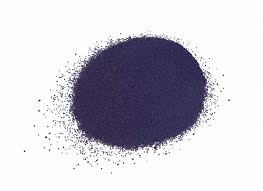Exploring the Art and Craft of Indigo Fabric Dyeing with Inspiring Quotes and Insights
The Beauty and Tradition of Indigo Fabric Dyeing
Indigo fabric dyeing is a centuries-old craft that has captivated artisans and consumers alike with its rich hues and cultural significance. This age-old technique, which dates back thousands of years, is more than just a method for coloring textiles; it is a storytelling medium where colors tell tales of heritage, nature, and artistry.
The Beauty and Tradition of Indigo Fabric Dyeing
The charm of indigo dyeing lies not only in its stunning visual appeal but also in the intricate techniques involved. Traditional methods of dyeing often require a deep understanding of fermentation processes and chemical reactions. Freshly harvested indigo leaves are processed to extract the dye, creating a paste that is fermented to produce the distinctive pigment. Artisans dip their fabric into this dye bath, allowing it to absorb the color gradually. The more the fabric is dipped, the deeper and more vibrant the blue becomes. After each dip, the fabric is exposed to air, which oxidizes the dye and alters the shade, creating beautiful variations that are unique to each piece.
indigo fabric dyeing quotes

One of the most fascinating aspects of indigo dyeing is the concept of resist dyeing. Artisans often use techniques such as tie-dye or batik to create patterns that resist the dye. These methods involve binding or applying wax to certain areas of the fabric, allowing the untouched areas to remain white or take on a lighter shade of blue. As a result, the fabric emerges not just as a single color but as a tapestry of intricate patterns and textures, each telling its own story.
In many cultures, indigo dyeing holds significant cultural and spiritual importance. For instance, in Japan, the art of indigo dyeing, known as “aizome,” has been recognized for its historical prominence and cultural value. The deep blue that indigo produces is often associated with purity and protection, making it a popular choice for traditional garments. Furthermore, many indigenous communities around the world view indigo as a sacred color, believing it can ward off evil spirits and bring good fortune.
Today, the demand for indigo-dyed fabrics is experiencing a renaissance, particularly among eco-conscious consumers. The rise of sustainable fashion has prompted a greater appreciation for natural dyes and artisanal techniques. Many contemporary designers are seeking out indigo dyeing to create unique clothing lines that honor traditional craftsmanship while also advocating for environmental stewardship. By using natural indigo, these designers are championing a way to produce textiles that are not only beautiful but also sustainable and ethical.
The journey of indigo dyeing is a celebration of humanity’s creativity and connection to nature. Every piece of indigo fabric carries with it the legacy of its makers, embodying the intricate processes, cultural histories, and sheer beauty that come together in this remarkable art. From handcrafted garments to stunning tapestries, indigo fabric represents a unique blend of tradition and innovation, reminding us of the timeless allure of this deep blue hue. As we move toward a more sustainable future, the revival of indigo dyeing reflects a broader understanding and appreciation for the art of craftsmanship and the narratives woven into every thread.
-
Innovating Bromo Indigo Excellence
NewsAug.23,2025
-
Pioneering Indigo Plant Dye Excellence
NewsAug.23,2025
-
Leading Sulphur Black Dyes Enterprise
NewsAug.23,2025
-
Sulphur Black Dyes Light Resistance
NewsAug.23,2025
-
Indigo Blue Granular Industrial Uses
NewsAug.23,2025
-
Bromo Indigo Synthetic Production Process
NewsAug.23,2025
-
The Timeless Art of Denim Indigo Dye
NewsJul.01,2025

Sulphur Black
1.Name: sulphur black; Sulfur Black; Sulphur Black 1;
2.Structure formula:
3.Molecule formula: C6H4N2O5
4.CAS No.: 1326-82-5
5.HS code: 32041911
6.Product specification:Appearance:black phosphorus flakes; black liquid

Bromo Indigo; Vat Bromo-Indigo; C.I.Vat Blue 5
1.Name: Bromo indigo; Vat bromo-indigo; C.I.Vat blue 5;
2.Structure formula:
3.Molecule formula: C16H6Br4N2O2
4.CAS No.: 2475-31-2
5.HS code: 3204151000 6.Major usage and instruction: Be mainly used to dye cotton fabrics.

Indigo Blue Vat Blue
1.Name: indigo blue,vat blue 1,
2.Structure formula:
3.Molecule formula: C16H10N2O2
4.. CAS No.: 482-89-3
5.Molecule weight: 262.62
6.HS code: 3204151000
7.Major usage and instruction: Be mainly used to dye cotton fabrics.

